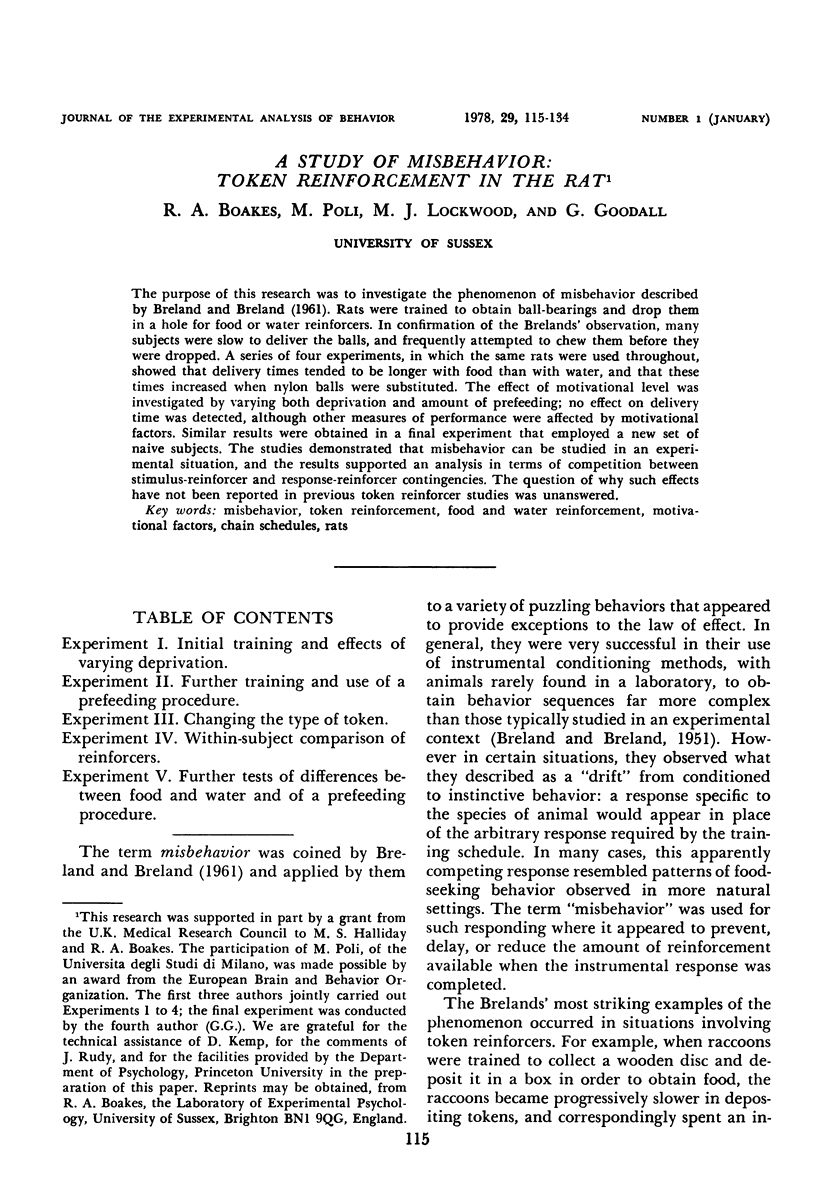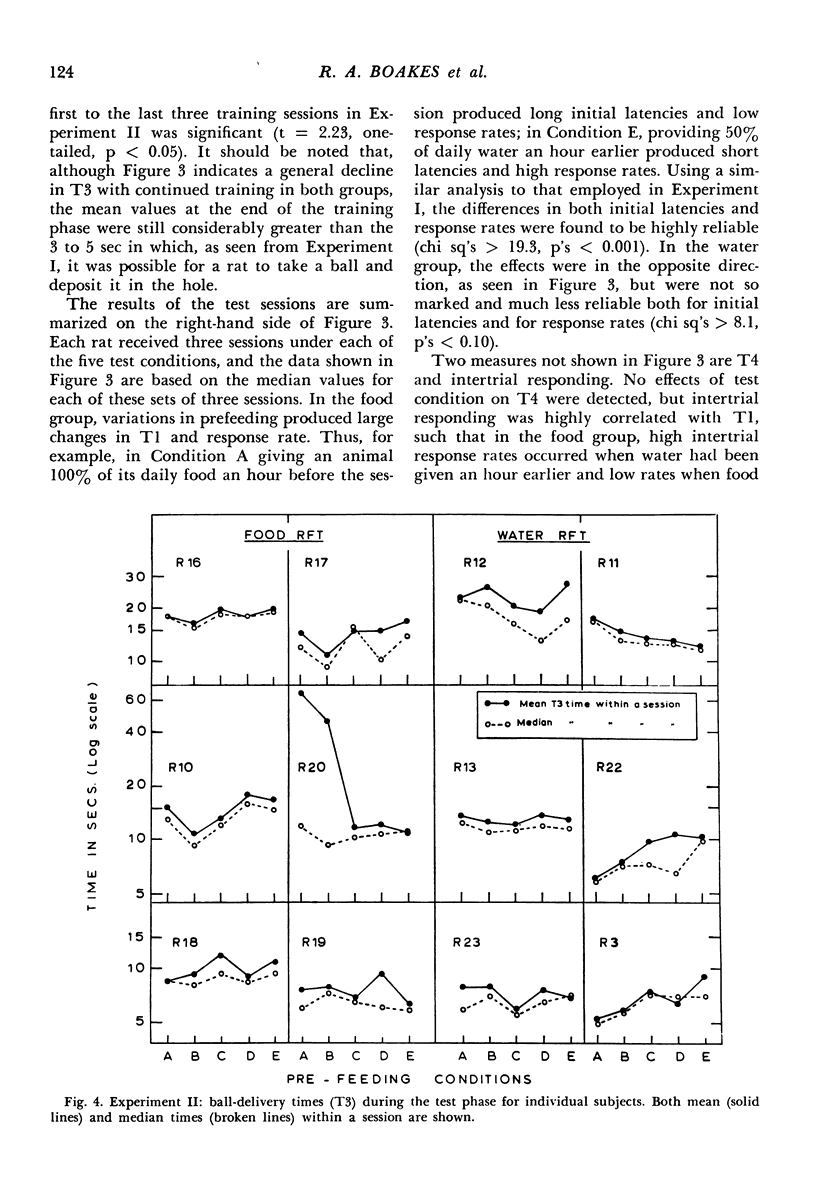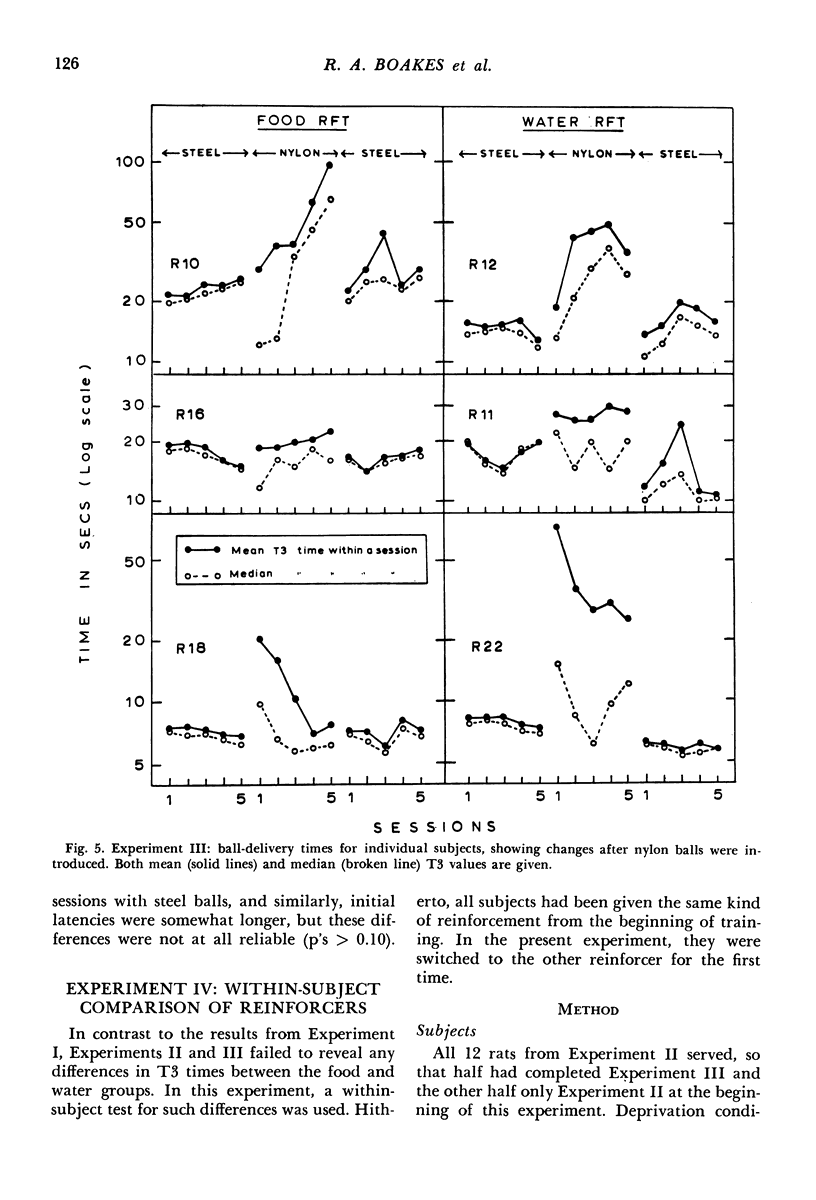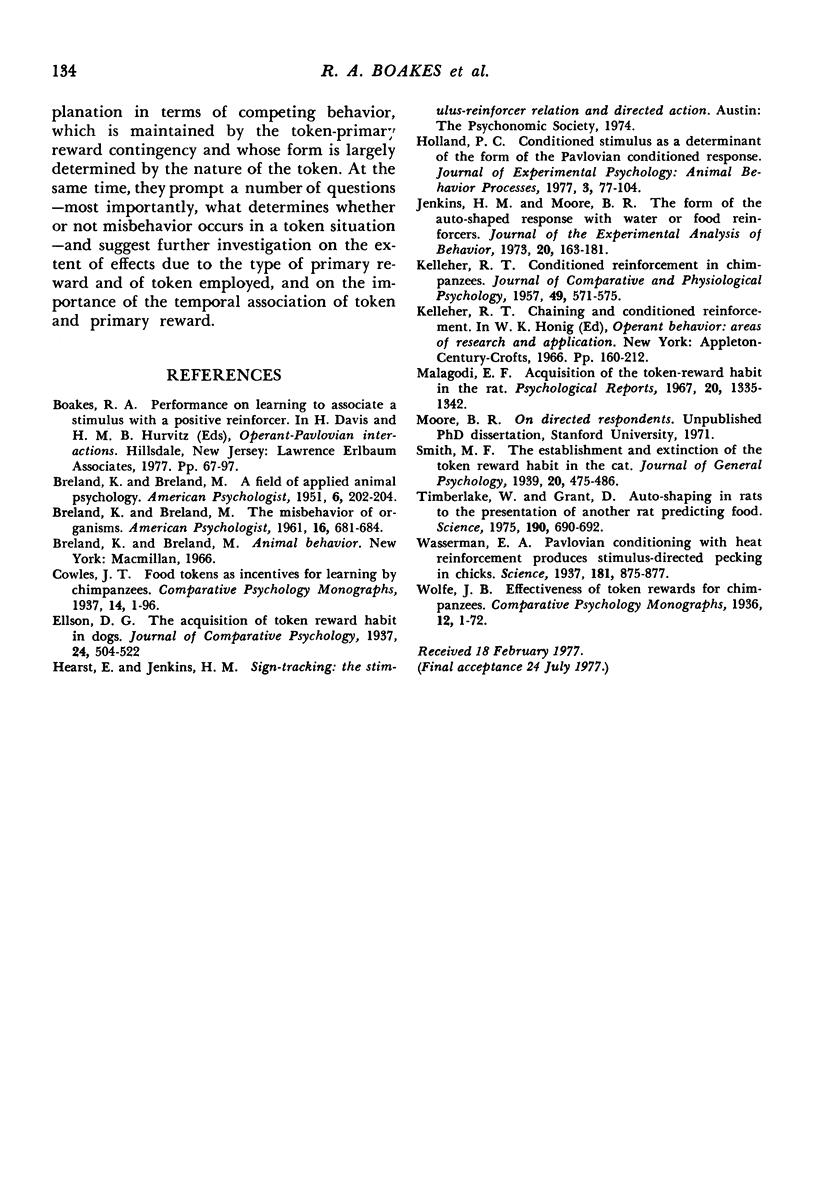Abstract
The purpose of this research was to investigate the phenomenon of misbehavior described by Breland and Breland (1961). Rats were trained to obtain ball-bearings and drop them in a hole for food or water reinforcers. In confirmation of the Brelands' observation, many subjects were slow to deliver the balls, and frequently attempted to chew them before they were dropped. A series of four experiments, in which the same rats were used throughout, showed that delivery times tended to be longer with food than with water, and that these times increased when nylon balls were substituted. The effect of motivational level was investigated by varying both deprivation and amount of prefeeding; no effect on delivery time was detected, although other measures of performance were affected by motivational factors. Similar results were obtained in a final experiment that employed a new set of naive subjects. The studies demonstrated that misbehavior can be studied in an experimental situation, and the results supported an analysis in terms of competition between stimulus-reinforcer and response-reinforcer contingencies. The question of why such effects have not been reported in previous token reinforcer studies was unanswered.
Keywords: misbehavior, token reinforcement, food and water reinforcement, motivational factors, chain schedules, rats
Full text
PDF



















Selected References
These references are in PubMed. This may not be the complete list of references from this article.
- BRELAND K., BRELAND M. A field of applied animal psychology. Am Psychol. 1951 Jun;6(6):202–204. doi: 10.1037/h0063451. [DOI] [PubMed] [Google Scholar]
- Holland P. C. Conditioned stimulus as a determinant of the form of the Pavlovian conditioned response. J Exp Psychol Anim Behav Process. 1977 Jan;3(1):77–104. doi: 10.1037//0097-7403.3.1.77. [DOI] [PubMed] [Google Scholar]
- Jenkins H. M., Moore B. R. The form of the auto-shaped response with food or water reinforcers. J Exp Anal Behav. 1973 Sep;20(2):163–181. doi: 10.1901/jeab.1973.20-163. [DOI] [PMC free article] [PubMed] [Google Scholar]
- KELLEHER R. T. Conditioned reinforcement in chimpanzees. J Comp Physiol Psychol. 1957 Dec;50(6):571–575. doi: 10.1037/h0044327. [DOI] [PubMed] [Google Scholar]
- Malagodi E. F. Acquistion of the token-reward habit in the rat. Psychol Rep. 1967 Jun;20(3 Suppl):1335–1342. doi: 10.2466/pr0.1967.20.3c.1335. [DOI] [PubMed] [Google Scholar]
- Wasserman E. A. Pavlovian conditioning with heat reinforcement produces stimulus-directed pecking in chicks. Science. 1973 Aug 31;181(4102):875–877. doi: 10.1126/science.181.4102.875. [DOI] [PubMed] [Google Scholar]


